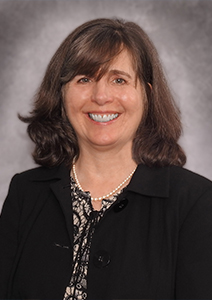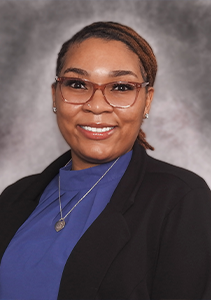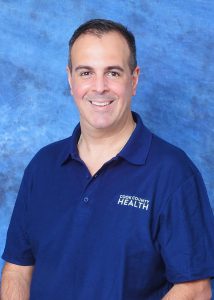After nearly two years as Cook County Health and Hospitals System’s chief executive officer, Dr. Ramanathan Raju believes he is on track to achieve his five-year vision to transform the nation’s third largest county-owned health system from an overwhelmed safety net provider largely focused on emergency care to a self-funded network with a primary care focus.
The CEO’s confidence is largely due to his faith in CountyCare, a program made possible by a federal waiver issued in October 2012 that permits county residents who are newly-qualified for Medicaid under the Affordable Care Act to enroll into the system before the ACA kicks in next year. Championed by Raju and Cook County Board President Toni Preckwinkle, CountyCare enables the hospitals system — which had a $96 million deficit in 2011 — to receive full federal reimbursement for services that may otherwise have been provided without compensation.
According to Raju, the program currently includes a network of 138 primary care access points. “The idea was to create a collaborative network, so that we are able to ensure that everybody who wants primary care will get primary care irrespective of what their status is,” he says.
In late August, the CCHHS board signed off on a $1.1 billion budget for 2014 that invests in CountyCare and system improvements while reducing the county’s subsidy by $76 million. Next year’s proposed budget largely hinges on the continuation of the revenue stream provided by CountyCare, which is set to expire Dec. 31.
In an effort to extend the program and capture a larger population, the system is applying for the state certification of CountyCare as an HMO to be sold on a statewide health insurance exchange beginning Oct. 1, 2014. Raju hopes the certification will expand the pool of enrollees to low-income residents who don’t qualify for Medicaid, businesses, and hospital system employees.
Before joining CCHHS, Raju was the chief operating officer and executive vice president of New York Health and Hospital Corporation and served as COO and chief medical officer at Coney Island Hospital in New York. He spent about 20 years as a practicing surgeon (he originally wanted to be an architect, but his traditional Indian father mandated that either he or his brother become a doctor) and has been trained in his native India, England, and the United States. He is married and has a son and daughter, both of whom live and work in New York City.
The Daily Whale sat down with Raju – one of Modern Healthcare’s 2013 Most Influential Physician Executives – to discuss CountyCare, working with Preckwinkle and his thoughts on medical education. An edited version of that conversation is below.
DW: Why were you interested in taking on the CEO position at the Cook County hospitals system?
RR: When this position opened up, I was kind of attracted to it because Cook County is an iconic institution, so naturally that kind of intrigued me. Also, this is one of the public hospitals which really needed real management so it could keep going to a greater extent. I always like a challenge – that’s the surgeon in me.
DW: The goal is to enroll 115,000 patients in CountyCare by the end of the year. How confident are you that will happen?
RR: I am very confident because as of [Aug. 30] we collected 93,000 applications, so I have less than 22,000 applications [to go]. … I’ll probably do that in the next 40 days so I will exceed the expectations very easily. I don’t want to say this is because we were very smart in getting it done, [instead] it simply shows that the people are thirsting for health care.
DW: Where are you in the application process to have CountyCare be sold on the statewide health exchange?
RR: We are in the process of applying for what we call the Managed Care Community Network status – that is an intermediary step before we become a full fledge HMO. We are trying to get that status on Jan. 1, and then by April 30 we are going to get an HMO license because that is the last day to place the plan on the health exchange on Oct. 1 of next year. That way we can enroll people for Jan. 1 of 2015.
DW: How confident are you that CountyCare will be part of the exchange come October?
RR: I’m very confident I’ll get the license, because nothing prevents me. I’m eligible, so nothing prevents me from not getting the license. The question is how many of my people will buy my plan. … But so far I can tell you that not many HMOS are really competing in the market. The first year there were only six of them willing to compete, so there’s not much of a choice at all. … I’m not competing for high-end big guys, no, I’m competing for low middle class and the poor people – that’s my market. I don’t think anybody will want to compete with me in the market.
DW: What type of outreach are you conducting to educate people about the program?
RR: Ours is a grassroots level. We contact and work with all the religious leaders, we work with all the community advocates, we work with various communities, all of the electives, we hold health education seminars, so we have done a tremendous amount of work. … We hit upon the right people – the people who make the [health care] decisions.
DW: A survey released in May showed strong patient dissatisfaction among the 10 county health care clinics. With the next year critical in terms of enticing people to go to CCHHS for their health care needs, what are the upcoming plans to help improve patient satisfaction?
RR: We are in the process of working together to make sure that two things are happening. One is we really wanted to strengthen our middle management who are extremely important. …What they do very well is they don’t leave you unhappy [if you have a complaint]. … The second part is we have to work on the front line. … I’ve got someone engaging [front line employees] as a part of the patient experience perspective.
DW: How will the system’s finances be impacted if CountyCare is ultimately unsuccessful?
RR: The problem is that the system will continue to rely on taxpayers to fund the system. I don’t want that. The system should have pride; we fund ourselves. We are able to carry out [CCHHS’s] mission and at the same time, we are responsible financially. I’m an extremely confident person, I don’t think it’s going to fail. I’ve never failed. I’m 61 years-old, I’ve never failed in my life, why would I fail today? No, it’s never going to happen. … We’ll get it done.
DW: What’s it been like working with President Preckwinkle?
RR: She has been a greatest help to me and I completely admire her. She has taken a very, very personal interest in the health system, and she has been extremely supportive. Without her I would not have gotten the 1115 waiver. Without her help I could not have done many things I’ve done here.
DW: Which do you find more fulfilling, practicing medicine or working in public health administration?
RR: Both. They are different roles. I was very happy to be a practicing doctor. I was able to really see my handicap and able to see the good results I brought, and sometimes not so good results. But then in this role, I can make a big difference to a lot more people.
DW: What is your opinion regarding the future of medical education?
RR: We need to create doctors who we need. We need a lot of primary care doctors. We need to provide more primary care residency programs.
DW: What are your hobbies?
RR: I read and I do biking, … and then I manage Cook County Health and Hospitals System.
Read the full article at Daily Whale.


